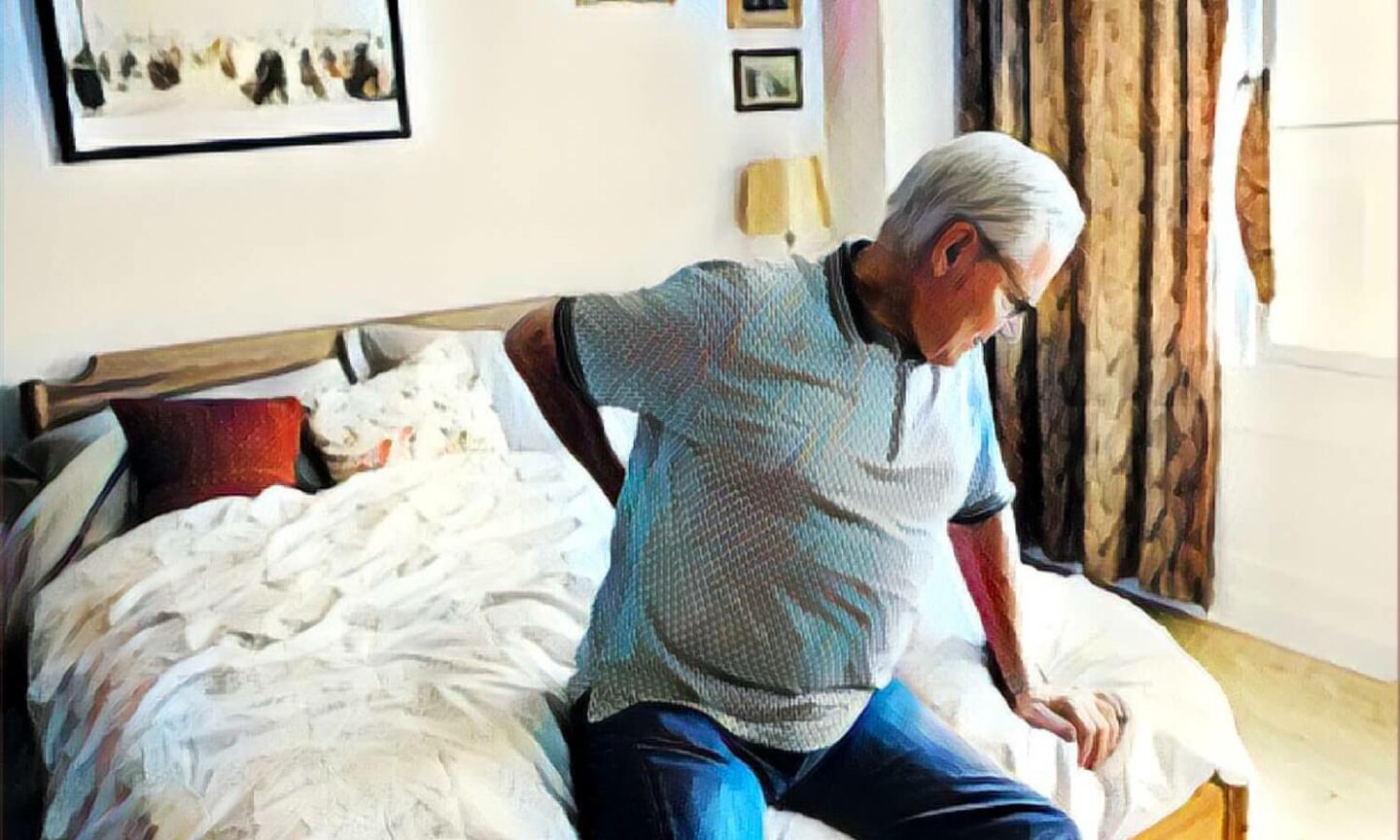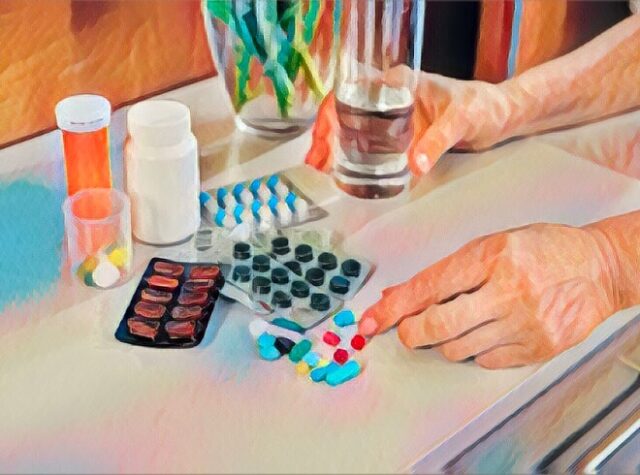Misconceptions about pain clinics
Misconceptions about pain management clinics
- Author: Dr Reza Feizerfan
- First published:

Misconceptions about pain clinics
“Pain clinics only prescribe medications”

Many people think pain clinics just prescribe pain medication, but that’s not true.
When you visit Pain Specialists WA, we will first assess you carefully and discuss all suitable management plans. Along with drugs, we might suggest specific physiotherapy that suits your condition. Perhaps you’ll need pain-relief injections or even natural supplements like fish oil and turmeric. These can reduce inflammation and help alleviate your pain.
We really take our time to get to know you during our appointments. We ask a lot of questions because we want to understand every part of your life that could be affecting your pain. This way, we can suggest the right treatment plan for you.
“Pain clinics only administer injections”

It’s a myth that pain clinics only administer injections. Actually, injections are just one small part of what we do. We look at your whole health and might suggest working with other health professionals, changing your lifestyle, getting support from allied health, or starting physiotherapy.
“For example, we may recommend strategies to help you with specific goals, linking you with the right people who can help you while you navigate through challenges. We may suggest lifestyle modifications specific to your needs. Sometimes less is more, and just simple changes can be enough without a need for injections. We are here to find out what suits you the best.”
Of course, pain injections can help some people for a while, but they’re not the whole answer. They can give you a break from pain, so you can start to move more and get stronger. If we offer an injection, most of the time it is with other recommendations so you can get the most out of the available treatments.
“I had cortisone before, but it doesn’t work for me (well)”
Cortisone is a steroid medication that helps reduce inflammation. Most injections for pain relief include some form of cortisone. However, the success of an injection can depend on how it’s done, where it’s given, any extra medicines used, and what the injection is for.
“Look at Joan’s case: she’s 72, and likes gardening but has constant shoulder pain from arthritis and bursitis. A cortisone shot in her shoulder joint didn’t help, but another shot in the bursa nearby really eased her pain. Both shots had cortisone and were for her shoulder, but where they were given made a big difference in how they worked.”
Many patients don’t always find relief from cortisone injections. It’s important to decide if you need an injection and, if so, where and how it should be given. That’s why we do a thorough evaluation before we recommend an injection, making sure it’s specifically suited to your needs and has the best chance of easing your pain.
“I need to rest for 48 hours after a pain injection”
Quite often, when a pain injection is administered, you’ll hear to rest for 48 hours. While I can’t speak for others’ guidelines, I’d like to clarify my approach and perspective on this matter.
Injections usually have local anaesthetics that can numb nerves and might make your limb feel weak for a little while. If this happens, be careful: don’t walk on your own until the numb feeling goes away, which generally takes up to 18 hours.
“But if you feel strong and can move easily after the injection, begin rehab right away. The first few days after the injection give you the best relief from pain, so make the most of that time. Now, this doesn’t mean that you should start running half a marathon or lifting weights at the gym.”
Rehab can be as simple as starting doing stretches, moving your joints and doing the physio exercises that were given by your physiotherapist. Sometimes, the first few days after the injection give you…that time. Sometimes, the first few days after the injection pain gets flared up, so you may need to take it easy initially and gradually build up your rehab.
Despite some beliefs, there’s no research showing that resting for 48-72 hours improves cortisone’s effect. In fact, staying inactive for too long can weaken muscles and cause more discomfort. Try it yourself, stay in bed for more than usual and you will feel stiff and more achy.
When I administer an injection, my guidance is to start your physical rehabilitation as soon as you feel able; there’s no benefit in delaying for days unless I advise otherwise based on your individual circumstances.
“Pain specialists only treat chronic pain”
Some people think we only help with long-lasting pain, but that’s not true. Yes, managing chronic pain is a big part of what we do, but we also treat pain that comes right after injuries or surgeries, helping you heal better and regain function.
“For example, we work closely with GPs and other specialists to manage pain well before elective surgeries, like knee or hip replacements. This approach, known as perioperative pain optimisation, can reduce the chance of developing chronic pain later.”
We also care for patients who are struggling with pain right after their surgery, a practice known as acute pain management. Whether it’s guiding you through recovery immediately after surgery or addressing long-standing pain, our goal is to provide effective, comprehensive pain relief strategies for all our patients.
“Pain specialists don’t care about the source of the pain”
Doctors have always been known to try and alleviate pain and suffering. This knowledge comes from archaeological finds and historical records. In modern times, we’ve learned that managing pain isn’t just about prescribing pills.
“As a pain specialist, I conduct an in-depth assessment of your individual situation. My goal is to understand you and determine the root cause of your pain so we can create a personalised care plan to help you. That’s why I ask numerous questions and have you fill out forms and questionnaires, which might seem unrelated at first.”
Keep in mind that chronic pain is complicated, and there might not always be a simple solution. However, we are committed to figuring out the best way to lessen your pain.
“But, I’m not cured!”
Chronic pain can stem from various causes and, as the term suggests, is chronic. It’s been present for an extended period, and finding a simple solution might not be feasible. In fact, once pain becomes chronic, seeking an outright cure may not be realistic, but effective management strategies to alleviate the pain and improve function are certainly available.
“I often encounter patients who feel disheartened when their pain resurfaces post-treatment. They express frustration, feeling they are not cured. In these situations, we re-evaluate and explore whether alternative approaches could offer more sustained relief from pain.”
It’s important to understand that chronic pain is similar to other persistent health issues like hypertension, diabetes, or high cholesterol. While there is no cure for these conditions, doctors employ various treatments and recommend lifestyle changes such as a balanced diet and regular exercise to find an effective management plan.
It is very similar in chronic pain: we will try a range of strategies until we have found the one that suits you the best. This is called a management plan, not a cure. During this process, it’s normal for your pain to occasionally worsen or flare up. However, there’s no need to worry – we are here to support you. Should your pain intensify, we will reassess your situation and, if necessary, adjust or repeat treatments to get back where you were.
Pain management clinic Perth
Get in touch
Pain can significantly interfere with your daily life. Specialists at a pain management clinic are uniquely qualified and educated to thoroughly examine what’s causing your pain.
If you’re considering seeking assistance from Pain Specialists WA to manage your pain, we encourage you to schedule an appointment.